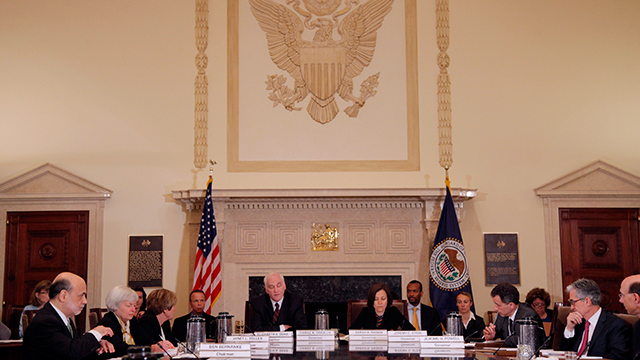
One downside of the Federal Reserve’s low interest rate is an equally low rate of return on bank deposits and government bonds. In yesterday’s The New York Times’, Nathaniel Popper writes that unsavvy investors seeking a higher rate of return have fallen victim to financial brokers selling risky junk bonds, real estate bundles (REITs) and other fraudulent “speculative bets.”These “alternative investments” recently have drawn the attention of the Fed and other regulatory groups.
Brokers promoting bad investments to unsophisticated investors is [sic] nothing new. But while the easy prey used to be people looking to get rich quick, the pool has widened to include savers looking for ways to earn the kind of income once reliably available from traditional investments.
Regulators are warning investors that the dangers are unlikely to recede, given the Federal Reserve’s pledge to keep interest rates near zero and the push among financial firms to earn more revenue from so-called alternative investments marketed to retail investors. Brokers are eager to sell these investments because they often bring in higher commissions than standard mutual funds and stocks.
In December, Massachusetts’ Secretary of the Commonwealth William F. Galvin ordered LPL Financial, one of the nation’s largest brokerage firms, to pay over $2 million to hundreds of Bay State residents for “dishonest and unethical” business practices.
“Non-traded REITs present risks to investors,” Galvin said in a statement. “Massachusetts recognizes those risks and requires limits on an investors’ exposure to the high fees, potential illiquidity and risky nature of non-traded REIT products.”
In a speech on Thursday, Jeremy C. Stein of the Federal Reserve, warned that failing to respond to excessive speculation in the junk bond market — presumably by raising interest rates — “may amount to an implicit policy of inaction” that the Fed could come to regret.
Is it a good idea to raise interest rates? WonkBlog‘s Neil Irwin writes that raising interest rates to stop a bubble is overkill and could prolong the recession.
…[H]iking interest rates to combat a bubble in this or that market would be the equivalent of fumigating an entire house after finding a small patch of mold. It may do the job, but comes at a great cost: The house is unusable for days. Similarly, if the Fed hikes interest rates to combat bubbles, it might succeed, but at the cost of slowing down the entire economy or causing a recession.
In the meantime, cases of less sophisticated investors being duped by aggressive financial advisers — technically investment fraud — continue to mount. The business management consultancy McKinsey and Company reports that from 2008 to 2012 the amount of money in alternative investments has more than doubled to $712 billion from $312 billion.

